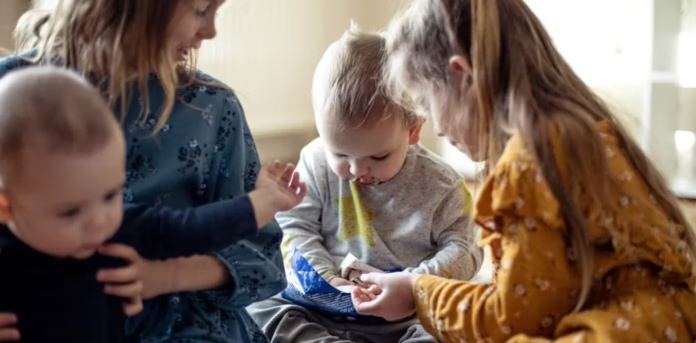More than a third of the 30 English constituencies with the highest percentage of households hit by the two-child limit are in the North West region, new data shows.
The North West features 11 times in the list of the hardest hit 30 constituencies, which is the highest proportion of all regions. At least 1 in 5 children and their families are impacted by the policy in these constituencies.
Salford (26.4%), Bolton South and Walkden (25%) and Gorton and Denton (24.9%) have some of the highest percentages of children affected by the two-child limit in England. The data also shows a strong correlation between the two-child limit and areas with high rates of child poverty.
New local data, obtained by the End Child Poverty Coalition, of which Manchester-based nonprofit Resolve Poverty is a steering group member, shows that over a third of the 30 English constituencies with the highest percentage of affected children are in the North West region.
This Sunday will mark eight years since the two-child limit came into force. The policy affects families entitled to benefits who have had a third or subsequent child after 6 April 2017, denying them £3,514 per year per child compared with families who have a third or subsequent child born before that date.
Research suggests that scrapping the two-child limit is the most cost-effective way of addressing child poverty. Ending the policy would lift 300,000 children directly out of poverty.
The new data also shows how much money each constituency could gain if the limit was scrapped. For example, Liverpool Riverside, ranked the most deprived constituency in England, could gain £5.2 million annually.
Graham Whitham, Chief Executive of Resolve Poverty said:
“The two-child limit is having an extremely damaging effect in the North West, with this new research indicating that more than 1 in 5 babies and children in several constituencies in our region are directly impacted by this policy. It’s not right that children with two or more siblings are more likely to be growing up in poverty.
“This policy forces parents into horrible choices and denies families the support they need from our social security system. Abolishing it would immediately lift 300,000 children out of poverty across the country and help our children to thrive.
“It would also benefit constituencies with a boost to their local economies of millions of pounds. Investment in the social security system is the route to achieving growth and addressing poverty – not the death spiral created by cuts and cruel policies.”
Rosie, a mum to three children in the North West said:
“I am a single parent to three children. My youngest was born in May 2017 – so we were one of the first families to be hit by the two-child limit. This policy had a huge impact on our family. I had to put my 3-month-old son into childcare so that I could go and wash pots in order to pay for essentials. I often had to choose between paying for new clothes for my children or paying the gas and electricity bill. I had to take out loans to be able to afford food.
“Today, I am still impacted by this policy psychologically. My children have even said that they don’t want kids of their own because they have seen me struggle.”
Joseph Howes, CEO of Buttle UK and Chair of the End Child Poverty Coalition said:
“The two-child limit is a cruel policy that pulls families from the North West, and around the UK into poverty – it has to go. The benefits to doing this are clear, it lifts hundreds of thousands of children out of poverty and provides an economic boost to local communities. The government must include scrapping this policy as part of their Child Poverty Strategy. For families impacted, the clock is ticking, we need action.”







